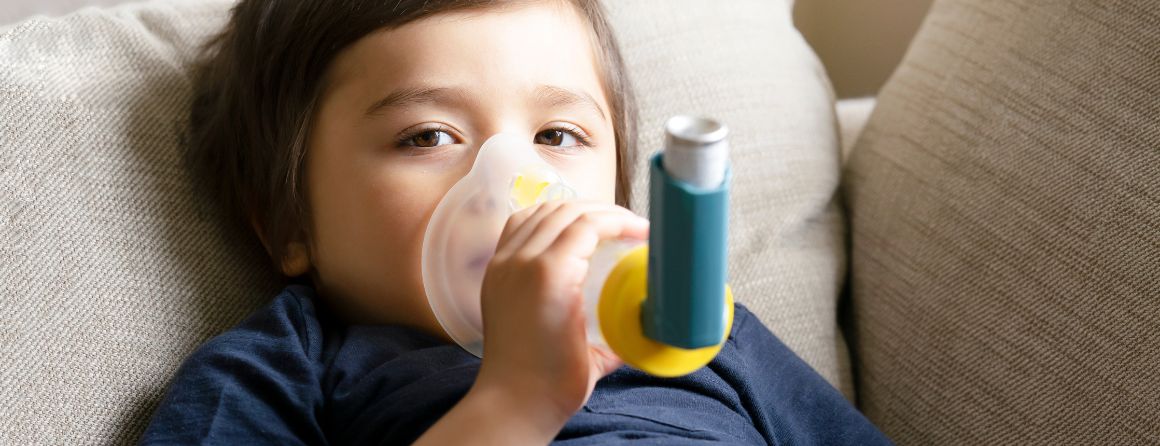COVID-19 and asthma: what are the risks for children?

COVID-19 causes much milder disease in children compared to adults, with very few children experiencing serious or life-threatening COVID-19 illness around the world.
The reasons why children are more mildly affected than adults are not clear, and we are trying to solve this mystery through an extensive program of research at Murdoch Children’s Research Institute (MCRI).
This research will likely reveal important clues as to how the virus infects our cells and what drives severe COVID-19 disease. We will also seek to further understand whether chronic health conditions in children, such as lung disease, increase the risk of severe infection.
As COVID-19 affects the lungs, it is important to understand how children with common lung conditions, such as asthma, might be affected if they contract the virus.
My child has asthma, are they at higher risk of COVID-19?
Fortunately, we have had few cases of COVID-19 in children in Australia compared to adults, and very few children have needed intensive care admission or mechanical ventilation. Studies from overseas have also reported similar findings.
Epidemiological studies (of large populations of people) investigating factors associated with severe COVID-19 show that chronic lung diseases such as asthma do not appear to increase risk. Some authors have even suggested that having asthma or being on asthma medication, may actually lower the risk of severe COVID-19, however, this is yet to be proven.
As COVID-19 infection causes coughing and shortness of breath, it is possible that milder cases of COVID-19 in asthmatics have been mistaken as asthma flare-ups. As viruses are a major trigger for asthma flare-ups in children, we are treating COVID-19 like any other respiratory virus in children.
What do I need to do to keep my child with asthma safe?
It is important that children with asthma are taking their preventer medication regularly, if prescribed, and are always carrying their Ventolin. They should use their inhalers via a spacer (and mask in children aged four years or under).
Daily use of a preventer is the single most effective method of reducing the chance of a bad asthma flare-up. Visit your local GP to ensure that you have an up-to-date asthma action plan and to make any adjustments to your asthma medication.
The annual influenza vaccine is also very important to reduce the chance of becoming unwell with the flu. It is a good idea for all household members to have the vaccine to reduce the chances of your child being exposed.
Prevention is always better than cure, so minimise the chance of becoming infected by following social distancing recommendations and ensuring your child washes their hands regularly.
Do inhaled steroids increase the risk of COVID-19?
Whilst there was some earlier evidence to suggest that steroid medication could worsen COVID-19, this is unclear. In the setting of a moderate to severe flare-up of asthma, oral steroids are still recommended. In fact, it is possible, but not proven, that inhaled steroid medications may be protective against severe COVID-19 infection, but further research is needed in this area.
For further information:
Other useful links:
Author: Dr Danielle Wurzel is a Respiratory Physician and post-doctoral researcher at the Melbourne Children's Campus (The Royal Children’s Hospital, the University of Melbourne and Murdoch Children's Research Institute). She is leading research into hospitalisations for COVID-19 and developing a platform to collect data across Australia and New Zealand. She is also investigating how COVID-19 affects children with chronic respiratory diseases, such as asthma and bronchiectasis, to help inform future management and prevention strategies.



